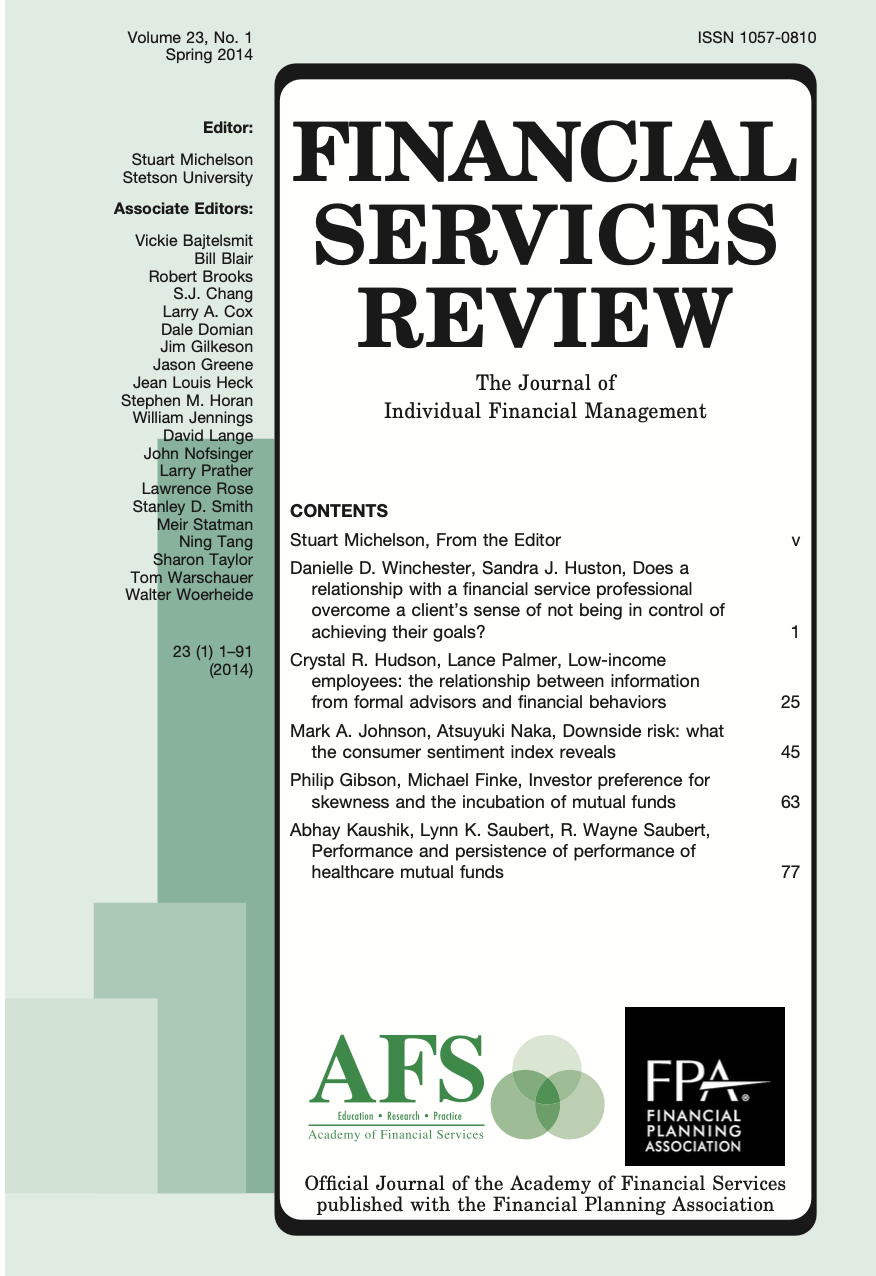Does a relationship with a financial service professional overcome a client’s sense of not being in control of achieving their goals?
DOI:
https://doi.org/10.61190/fsr.v23i1.3183Keywords:
Financial advice, Goal progress, Self-efficacy, Behavioral controlAbstract
Although considerable evidence suggests that setting goals increases the odds of behavior changes that lead to goal attainment, less research has been conducted examining what underlying traits allow some to successfully attain their goals when others do not. This study, using the Theory of Planned Behavior, examines the affects of individual control beliefs on financial goal progress. Findings suggest that low control beliefs are significantly associated with less financial-goal progress; however, the receipt of expert financial advice can reduce this negative effect and result in higher levels of goal progress than that of individuals with high control beliefs.
Downloads
Published
How to Cite
Issue
Section
License
Copyright (c) 2014 Academy of Financial Services

This work is licensed under a Creative Commons Attribution-NonCommercial 4.0 International License.
Author(s) retain copyright and grant the Journal right of first publication with the work simultaneously licensed under a Creative Commons Attribution-NonCommercial 4.0 International License that allows to share the work with an acknowledgment of the work's authorship and initial publication in this Journal.
This license allows the author to remix, tweak, and build upon the original work non-commercially. The new work(s) must be non-commercial and acknowledge the original work.


